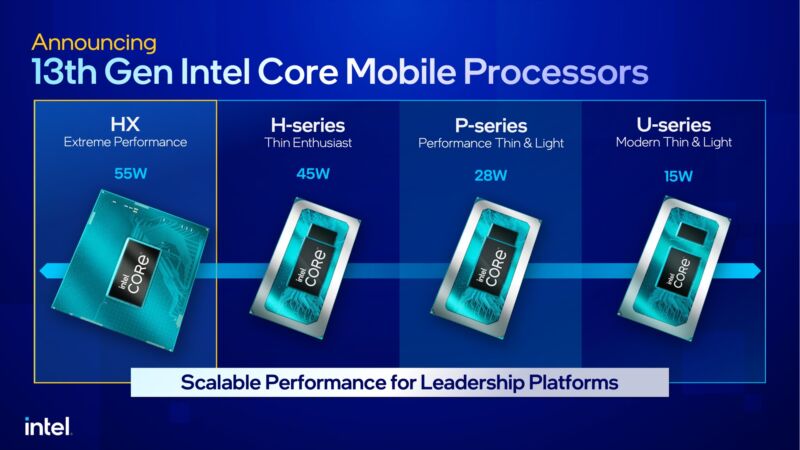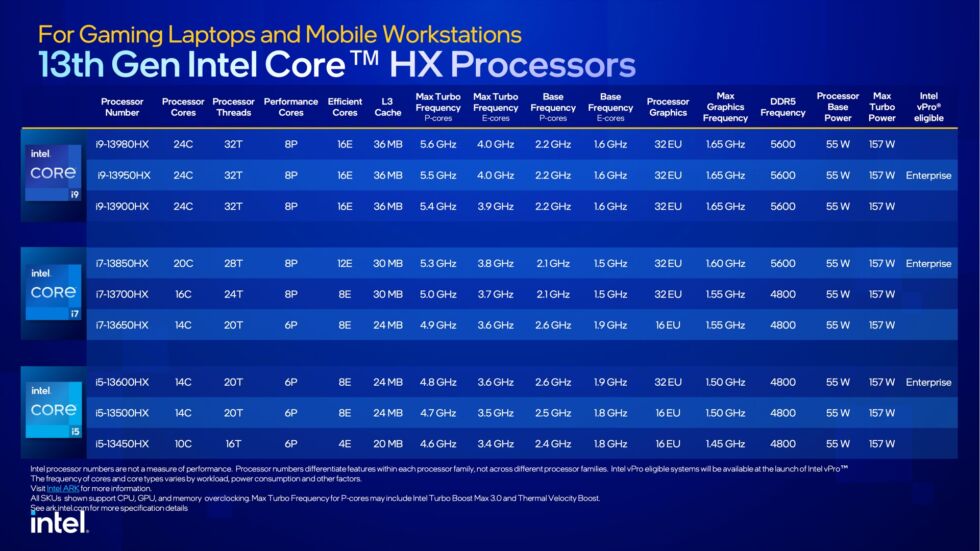Intel announces new, mildly improved CPUs for this year’s crop of laptops

Enlarge / Intel's new laptop CPU lineup is a lot like the old CPU lineup. (credit: Intel)
Intel's 13th-generation desktop CPU refresh is interesting because processors throughout the lineup are picking up extra clusters of four or eight E-cores, significantly improving how they handle heavily threaded tasks. The new laptop CPUs that Intel has also announced are much less interesting-the ones that will end up in most laptops increase clock speeds and support faster memory but are otherwise mostly identical to the 12th-generation CPUs they're replacing.
This isn't uncommon; Intel's 7th generation refresh was similarly low-key, and the 10th generation mostly was, too. The days when every year would bring either a new architecture or a new manufacturing process are long gone. Just know when you're shopping for a laptop that the jump from the 11th to the 12th generation represents a much larger performance leap (and, sometimes, a battery life reduction) than the jump from the 12th to the 13th gen.

Because they're desktop chips repackaged for mobile, the HX CPUs improve more than the other 13th-gen laptop CPUs. Like the desktop CPUs, they pick up extra E-cores. [credit: Intel ]
Intel spent most of its presentation talking about the high-end HX-series processors, mainly because they're the only ones significantly different from their 12th-gen predecessors. HX laptop processors are essentially Intel's Raptor Lake desktop CPUs, repackaged to be soldered down to a laptop motherboard. Like those desktop CPUs, they all include additional E-cores relative to 12th-gen CPUs. The Core i9 CPUs and the i7-13850HX also support faster DDR5-5600 RAM, though the others stick with DDR5-4800.